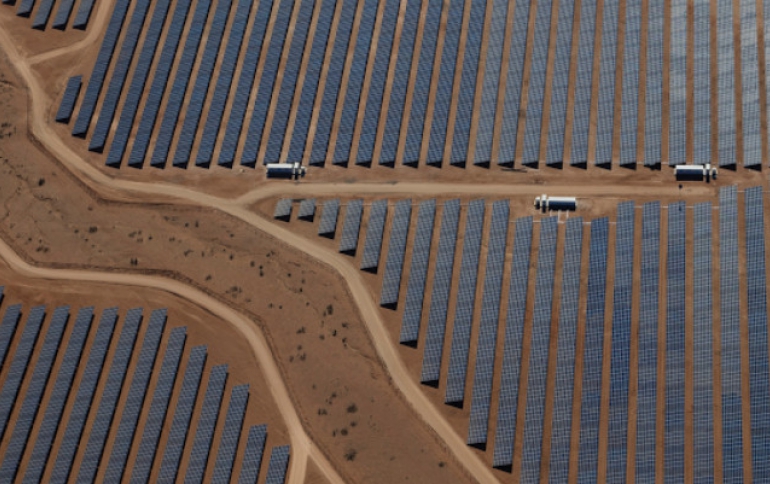
Google Buys Huge Renewable Energy Package
Google, which has been a carbon-neutral company since 2007 and the largest corporate buyer of renewable energy in the world, is taking another step by making the biggest corporate purchase of renewable energy in history.
This purchase is made up of a 1,600-megawatt (MW) package of agreements and includes 18 new energy deals. Together, these deals will increase Google's worldwide portfolio of wind and solar agreements by more than 40 percent, to 5,500 MW—equivalent to the capacity of a million solar rooftops. Once all these projects come online, the company's carbon-free energy portfolio will produce more electricity than places like Washington D.C. or entire countries like Lithuania uses each year.
Google also says that its latest agreements will also spur the construction of more than $2 billion in new energy infrastructure, including millions of solar panels and hundreds of wind turbines spread across three continents. In all, Google's renewable energy fleet now stands at 52 projects, driving more than $7 billion in new construction and thousands of related jobs.
"Bringing incremental renewable energy to the grids where we consume energy is a critical component of pursuing 24x7 carbon-free energy for all of our operations," said Google CEO Sundar Pichai.
These 18 new deals span the globe, and include investments in the U.S., Chile and Europe. In the U.S., Google will purchase energy from 720 MW of solar farms in North Carolina (155 MW), South Carolina (75 MW), and Texas (490 MW). In South America, Google is adding 125 MW of renewable energy capacity to the grid that supplies its data center in Chile. Pichai will be tomorrowe in Finland to share more detail on Google's new projects in Europe.
Google also announced two new grants from Google.org to provide further support for organizations that expand access to clean energy for all businesses. The company will provide a $500,000 grant to Renewable Energy Buyers Alliance (REBA) in the U.S. and a 500,000 euro grant to RE-Source in Europe.




















